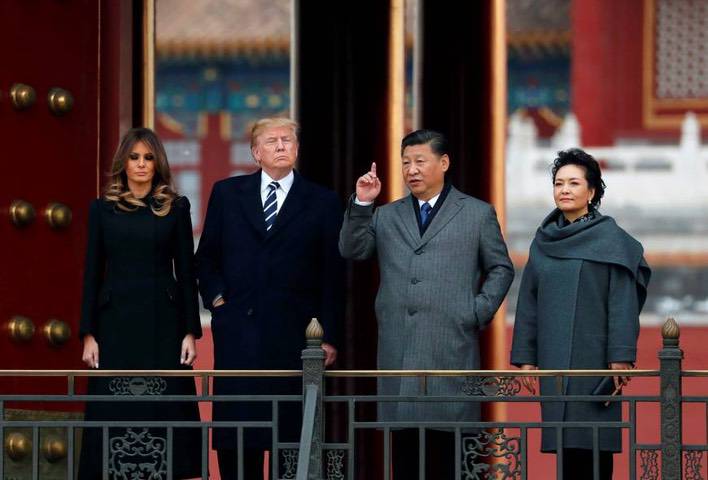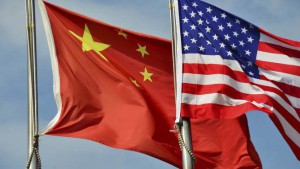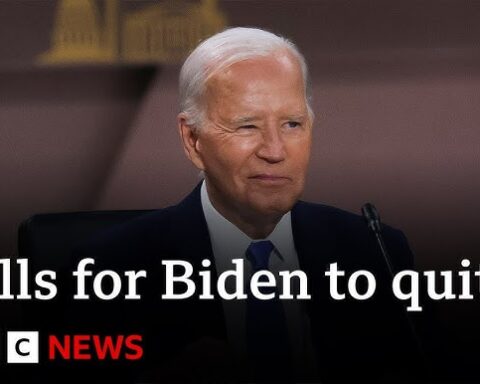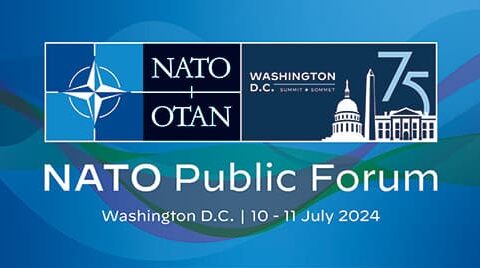I noticed something curious recently, nestled away in one of the newspapers: that the Chinese government has apparently banned the classic book 1984 by George Orwell.
There’s something that kind of speaks for itself when an oppressive government bans not just any old book, but something as specific as 1984. Orwell’s Animal Farm has also been banned, for that matter.
But it seems fairly obvious that a state that functions entirely along 1984 lines would eventually need to make sure its citizens don’t get to read 1984 and notice the similarities.
This is apparently part of a massive online censorship campaign. Clearly, either Orwell’s books have been getting too much attention in China or the authorities want to make sure they don’t get any attention – or both. Makes sense, of course – if you’ve built 1984 in real terms, you have to make sure your citizens don’t realise it or at least don’t have such a glaring frame of reference.
This all coincides with President Xi Jinping’s efforts to establish himself more or less as a leader with an indefinite term of office: something that has provoked deep suspicion and dispproval across China, where some people online have called him a dictator.
The corporate/military oligarchy (or, as it prefers to call itself, Communist Party ‘People’s Republic of China’) is amending the constitution to allow Xi Jinping the mandate to stay in power indefinitely. He could now, in theory, be the dictator for life.
The Chinese leader and govermnent has been engaged in a sweeping crackdown on critics, civil society, activists and dissent, going back to 2015: but it’s not as if the Chinese state was known for its freedoms of thought or expression before this either.
The Evening Standard piece also notes that the crackdowns were more or less codified in the rebooted constitution, with a line that “There will be even less tolerance of criticism.”
In 1984, Orwell imagined a society where people were entirely controlled by the state (a despotic new world order). Through screens and technology, citizens are fed an endless stream of propaganda, taught to conform to the system, and permanently spied on by Big Brother so that everything they see, say, do, even think, is monitored.
How Orwellian is China?
Well, try this. The ‘Social Credit’ system, formulated in 2014 and recently implemented in China, is an archetypal NWO enslavement system operating in plain sight. In this system, people can be barred from travel (on planes or even on trains) if their ‘social credit score’ is deemed unsatisfactory. Basically, the social credit system merges everything – credit records and financial activity, legal records, school records, social media accounts, online shopping activity, etc – and is monitored by the state to determine whether a citizen is satisfactorily conforming to the state’s idea of a good citizen.
The problem is what happens when your ‘citizen ranking’ if found unsatisfactory – you’re barred from travel, barred from buying property, apparently even barred from dining at the best restauraunts, etc.
And what’s extraordinary is that your ‘citizen ranking’ is determined by the broad surveillance that the state is keeping you under: so, for example, your ‘score’ can be lowered by the kind of stuff you say, post, share or like on your social media accounts or buy purchasing certain products online.
Needless to say, any form of ‘dissent’ or criticism of the government is going to diminish your rating substantially.
Chinese authorities have also been found to be ‘systematically building and deploying a “predictive policing program” based on big data analysis’: a system that ‘aggregates data about people, often without their knowledge, flagging those it deems potentially threatening to officials’. Human Rights Watch alleges that those people targeted in this program are ‘detained and sent to extralegal “political education centers” where they are held indefinitely without charge or trial, and can be subject to abuse.’
I genuinely worry that we might all be heading in this approximate direction, even if to varying degrees and at different rates.
It seems like almost every country in the world – and certainly the ‘powers’ like China, Russia and the United States – has been moving, as if in unison, towards less freedom, more surveillence and censorship, as if various governments (or powers behind various governments) have a specific end-game model in mind and different countries – despite being politically or idealogically very different – are walking almost in lock-step in key respects.
Take the state in Pakistan, which is openly engaged in a war against free speech. In fact, a Pakistani man was even sentenced to death on account of a Facebook post that was deemed ‘blasphemous’: yet what’s most extraordinary about this is not the backwards barbarism of religious extremism in Pakistan, but the fact that Facebook cooperated fully with the authorities – which, given the recent scandal involving Facebook in the West, is worrying in terms of its implications for all of us in the future.
Interestingly, the Pakistani authorities’ disgusting treatment of this individual (and many other individuals) was officially justified as an act of ‘counter-terrorism’ (when in fact it was nothing of the sort). The counter-terrorism argument as a justification for crackdowns on Internet freedoms or civil liberties spans nations: you hear it everywhere from Russia and China to Turkey and France and the United States.
Indeed, you even hear it now from British politicians and Conservative governments officials, who periodically test the waters in terms of proposed thought-policing ideas (having already, last year, established the Snooper’s Charter to function in accordance with America’s NSA).

I’m making a more broad point here about creeping totalitarianism with the frog-pot being heated carefully and incrementally, year after year, so that we don’t panic and jump out: I’m not suggesting we’d get to the point where 1984 was banned in the UK – you couldn’t really ban something as culturally pervasive as 1984 or Animal Farm now are in Britain; whereas in China, I presume, the book hasn’t penetrated the cultural mindset as much.
In terms of a possible decline of democracy and civil liberties across the board, let’s look at what the Leader of the Free World had to say about Xi Jinping making himself permanent dictator in China. Here is what US President Donald Trump said, a month ago, during a speech to Republican donors at Mar-a-Lago: “He’s now president for life. President for life. No, he’s great. And look, he was able to do that. I think it’s great. Maybe we’ll have to give that a shot some day.”
But I’ve had the argument put to me before that China is something like the working ‘model’ for a future worldwide government: and even that the present global dynamic is being carefully dismantled or re-aligned in that direction.
I’m not sure I subscribe to that theory, but it is nevertheless one reason I watch China carefully.
And the thing about China is that, although it is not a free country and although it has an oppressive state, it has played a blinder for a very long time, establishing its presence and influence all over the world – almost entirely by financial and peaceful means – while the United States has been blundering into failed enterprises and military conflicts and making itself loathed by half the planet.
Yet, regardless of its restraint in military engagements thus far, China is a military superpower (it has the biggest army on earth) – but, unlike the US, it is a military superpower that hasn’t overstretched itself or gotten bogged down in fruitless conflicts. And has also avoided the kind of widespread resistance or hatred that the United States has come to engender in different countries – no one is seen burning Chinese flags or attacking Chinese embassies.

China’s ‘soft imperialism’ strategy (such as the new ‘Silk Road’) has seen it making all kinds of inroads all over the place and embedding itself into numerous countries, often overlooked by international media coverage, while the United States finds itself mired in places like Syria.
It’s extraordinary to see, for example, how many people in Pakistan speak so positively about China’s involvement in that country – whereas the amount of anti-American hatred and resentment in the same country has been extraordinary, even though Pakistan has (technically) been a supposed close ally of the United States for decades.
The fact is that the US and China are both imperialist powers seeking geopolitical domination – the difference is in their present strategies and approaches.
While the Pilger predictions of the ‘coming war’ between the United States and China are worrying, what also worries me is a perception that the United States is in the process of a kind of controlled demolition (of which the Trump presidency and the divide it is causing are merely the most visible aspects) and will be replaced firmly and inevitably by China as the world power and prevailing global influence.
I’ve spoken to people who actually think a China-centered world order would be a good thing and would be better than US hegemony.
But – other than as a result of the pervading trend of general anti-Americanism – I can’t understand why anyone would really think that.
The Chinese state has all the same flaws as the United States – but minus any of the good things about the United States. It is basically an ultra-capitalist society, with power in the hands of mega-rich elites, except – unlike the US – it has no interest in political freedoms, human rights or democracy.
In the long-run (assuming for a moment that the ‘China World Order’ argument has merit), that’s going to be a trade-down and not a trade-up.
As for the aforementioned idea that China is the working ‘model’ for the future world order, in that context it would make perfect sense to ban Orwell’s 1984 in that country.
There are lots of different books that have been banned in various countries at various times: but the vast majority of these were either for being perceived as sexually obscene or for defaming the religion of the country in question. It seems rarer that a book is banned simply because its prophetic nature hits too close to the political reality of the country that’s banning it.
In fact, 1984 was also banned in the Soviet Union for decades. It was only published in Russia in the 1990s and only after careful editing.
After looking a bit more into it, I discovered there was also a significant push to ban 1984 in both Britain and the United States during the Cuban Missile Crisis. Animal Farm was also banned for a long time in the Soviet Union and is still banned in North Korea.
Meanwhile, the closest anyone’s going to get to Chinese Democracy any time soon is to purchase or download the Guns N’ Roses album of that name.
Read more: ‘Turkey: Erdogan, the Gulenists & an Age of Universal Deceit‘, ‘North Korea: A Dystopia With the Right to Defend Itself‘, ‘The Undiscovered Country: Why Only Trump Could Go to North Korea‘…





Two challenging appraisals — ‘Russian Insider’ on Stalin and ‘The Saker’ on Mao — have caused m’pause. What isn’t undone, are western based historical and contemporary offensive-offenses lead the troubles. Primers of d’pump. Never ends up other, whatever the sift. One bad apple… And this: about a dozen or so families, behind and a couple of waring US-centric-focused factions. City of London, my take on HQ. As for the coming and what CAN we do? Is China’s takeover all ‘their’ necessary response? Fight or flight, come manage the equilibrium or become a subcontractor. Great piece and comments. Won’t bog up anymore with what I should do is re-blog-again. Wondering always — why? Like this comment, about a measure of acknowledgment and feed into the actuaries and GCHQ etc. Cast the only ‘vote’ that matters. As usual… burning the bedlam, about best on the block. Thanks.
Nice one, Mark – always refreshed by your customary jazz style of commentating. Serious observations and free-flowing poetry all at once. I’m not entirely sure about City of London still being the HQ (although I know that, historically, it always was) – I mean, you may be spot-on and I know there’s plenty who believe this to be the case; but I’m on the fence with that. I always remember how little the US listened to or consulted British leadership during the Iraq War – which was predominately a US project with Britain as lackeys or enablers. That didn’t feel to me like the City of London was the main driver. But I guess, as you point out, they’re all inter-related anyway.
British empire enthusiast Niall Fergusson was one significant figure in pushing for the Iraq war.
His motive was for angloamerica to establish themselves in Iraq as an imperial project.
The recently deceased orientalist Bernard Lewis, trained in Oxford went to the US in the 1970s and became the mentor of Kissinger, Samuel Huntington and Brzezinsky. He had a strong influence on the neocons. Fergusson likewise, is said to have influenced Cheney and Rumsfeld concerning the view of Iraq as an imperial project.
Other British individuals contributed, Nile Gardiner and columnist Sebastian Mallaby. Paul Johnson had in 1983 in Modern Times provided background material. He was Thatchers history-teacher.
And Tony Blairs foreign policy advicer Robert Cooper.
The following link in swedish contains a reference list at the end.
http://sandberg.be/vindskupan_hem/2007/03/den-brittiska-lanken-ii-en-drom-gar-i-uppfyllelse/
On the other hand, the fact that Fergussons only positively received work (at least around 2007)among scholars of history, his 1000 pages about the Rothschilds, may be taken as a distancing to the bankers, I think the oppossite is true. The angloamerican establishment to which Fergusson belongs, is always playing on both sides, relying on the said establishments tentacles in all branches of opinionmaking to remain in control, preventing the full picture to gain too much attention.
That’s great stuff, Petergrafstrm. I keep picturing you with a magnifying glass and a Sherlock Holmes suit.
I take all of what you’ve put forward here – my main point, regarding the UK/US dynamic in regard to Iraq, was the US dismissing the Blair government’s “advice” that they shouldn’t dismantle the Iraqi state or the Ba’athist regime entirely: and that to do so would make it impossible to stabilise Iraq after the invasion.
No surprise there, is there! If DT could read more than one line of text at a time and if he’d ever heard of “1984” he’d likely ordered it banned in the good ol’ US of A also. Then he’d ban a whole bunch of books, just to be able to tweet that he banned them first.
I think it’s really something that the sitting US President clearly doesn’t have any qualms with dictatorship. What an age we live in.
Orwell wrote about Britain, he saw those things materialise there. Harry Elmer Barnes saw them materialise under FDR from around 1937.
China is something entirely different. The Kon Fu Tse philosophy is compatible with common decency. Angloamerica is compatible with pure evil practised on a global scale.
China focuses on getting their act together making sure the west will have a hard time pushing color revolutions, seducing young adepts with scholarships with no other aim than to bring down the chinese government. These treasonous processes are running and there is surely more to come from the evil empire. I applaud the chinese determination not to allow any dirty special operations.
On the other hand it is a bit boyscoutish to count peoples merits as intended. Not cool from the point of us cynical westerners. But what has our cynism brought to us?
Like I H E Barnes and Orwell observed, it brought us 1984. Its here. We’re living it.
Our governments are up to neck in it.
China builds infrastructure where the west has never had any good intentions.
I will say it does frequently astonish me the extent to which Colonial Britain is to blame for so much of what is wrong in the world; be it in Africa, the Mid-East, Israel, India/Pakistan, and even somewhere like Myanmar/Burma (where some even trace the ethnic cleansing going on in Burma today as a consequence of British interference there decades ago).
I still don’t necessarily think that makes China the best of all options – but I accept that, by comparison with the actions of Western powers (and the results), China comes off looking (rightly or wrongly) like the Good Guys.
In the West the impact of 1984 has been slowly defused thanks in part to the appropriation of its central themes – so ‘Big Brother’ is now a reality TV show and ‘Room 101’ another TV game show. It also turns out that most people here as elsewhere are happy and very willing to sacrifice individual freedom and privacy for fashion and convenience. Orwell, although a brilliant prophet in most respects, just never thought of that.
As for China, oddly enough I mentioned 1984 and recommended it to a Chinese friend when I visited a decade ago. He’d never heard of it of course and though he generally liked to discuss politics I couldn’t engage his interest at all in any of Orwell’s central themes. No doubt they were too close to home already.
I think it’s called eudaimonistic legitimacy. Most of the twentieth century was so horrific in China, that, and by comparison, having enjoyed such steadily rising prosperity, political stability and broadened personal freedoms, the Chinese (at least the middle class) are in the habit of readily trusting the existing powers-that-be. Basically, the middle classes (of which this friend is very much a part) have never had it so good and so faulting the government or even the “communist” system mostly falls on deaf ears – this has been my experience of speaking with many Chinese over the years.
However China remains a puzzle to me. It is in a state of monumental flux and transition and who knows what its people might want in a few decades time. It is like Victorian Britain in some ways. The misery and hardships of a generation of people being sacrificed to construct the basic foundations for a modern society. In any case, given the course of present history it will soon eclipse the West economically unless their is a war to prevent this – Pilger’s very justified fear.
And it is perhaps this unstoppable inevitability of the rise of China that causes some in the West to dream that future Chinese rule will somehow automatically be less oppressive. A hope simply born out of desperation. Better the enemy you don’t know – given how bad the situation we do know and live under is rapidly becoming.
Having said this, history too is suggestive that China may in fact show less interest in world domination that our own European powers have held (here I count the US as a quasi-European superpower given its shared religious and ideological underpinnings). After all America still actively and very openly seeks global supremacy as if this is merely a natural extension of its ‘manifest destiny’, whereas China has traditionally been more insular, with an historical tendency to disregard the world beyond its borders as a place of more or less irrelevant barbarism.
Thus its own arrogance is alike the arrogance of the European powers in one way but different in terms of consequences for non-Chinese. For when China long ago held the world’s most advanced fleets of ships it deployed them merely to trade. So I’m wondering (in truth, hoping) that this ingrained cultural (even psychological) difference might limit China’s future meddling in global affairs. Alternatively, presuming it demands and achieves global hegemony, then as foreign barbarians under Chinese imperialist rule, doubtless we will treated in much the way we have treated (and continue to treat) Africans, Australian aboriginals, native Americans, Latin Americans and indeed Asians.
Wow, ‘eudaimonistic legitimacy’ – definitely never heard that term before.
But thanks, WoC, you make really great points. On the possibility of China being perhaps less interested in interfering in other countries, that might prove to be true – if, as you suggest, that’s simply a part of the cultural mindset. On the other hand, it might also be that the mere reality of *being* the global power significantly *alters* that power’s outlook and behaviour. As a case in point, the US used to actually be the champion of the underdog and the advocate of the downtrodden societies and nations vying for independence and self-determination, etc – back in the days when it was the British and French who were the imperialist powers, carving up half the world as they saw fit. And now look at how people generally perceive the US to be the imperialist bully.
It’s all very difficult to judge when it comes to China – as you aptly point out. What seems to be the case, at any rate, is that all the 21st century US foreign policy (the Middle East, Northern Africa, Afghanistan, North Korea) has followed the ‘New American Century’ model – and the New American Century was essentially all about trying to make sure the US didn’t lose the 21st century to China. It’s probably backfiring big-time: and, arguably, the US would’ve done much better (in propaganda and perception terms) had it simply let China do its thing – and let the world decide whether it preferred American or Chinese domination or influence. Because arguably most of the world would’ve seen China as a dictatorship with very limited freedoms and liberties and would’ve seen the US as a beacon of democracy and liberty. Instead, the US has made itself hated the world over, made a mess all over the Mid-East, alienated even Europe, and left China looking like a wise, restrained, grown-up power by comparison.
Thus the entire ‘New American Century’ has simply left China holding the better hand.
Thanks for such considered and quality comment though, WoC – also, you’ve made me a tad more optimistic (possibly) about a non-interventionist China for the time being.